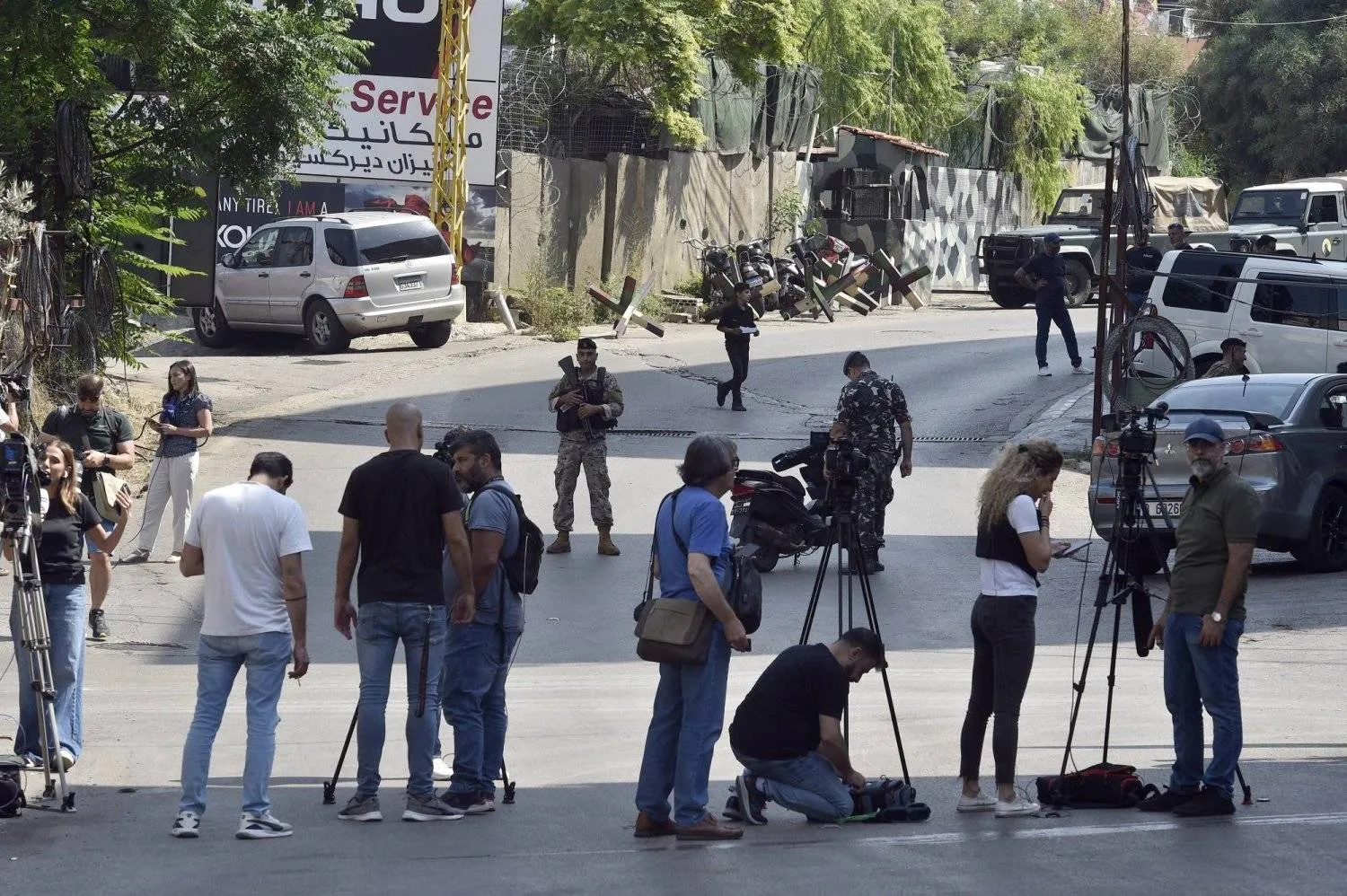A Syrian national fired at the US embassy in Beirut on Wednesday morning, shouting slogans in support of Gaza. According to security information, a militant cell consisting of two Lebanese and a number of Syrians was behind the attack.
Although the attacker claimed to be belonging to ISIS, a high-ranking security source refused to accuse the organization of orchestrating the shooting despite confirming to Asharq Al-Awsat that the man was influenced by the group’s extremist ideology.
In a statement, the Lebanese Army said: “The US Embassy in Lebanon, located in the Awkar area, was targeted by gunfire from an individual holding Syrian nationality. Army personnel deployed in the area promptly responded to the source of the gunfire, resulting in the injury and subsequent arrest of the perpetrator, who was then transferred to a hospital for treatment. Investigations are ongoing to determine the circumstances of the incident.”
For its part, the US embassy said on X that thanks to “the swift response of the Lebanese Army, Internal Security Forces, and our embassy’s security team, our facilities and personnel are safe.”
It added: “Investigations are ongoing, and we are in close contact with the relevant authorities in the host country.”
Military sources told Asharq Al-Awsat that the shooter, named Qais Al-Kharraj, said during the interrogation that the attack was in support of Gaza. The sources added that several individuals were arrested in the town of Al-Suwairi in the Western Bekaa, where the gunman resides.
They also revealed that the State Security Directorate in the Bekaa was able, in a swift raid, to arrest the brother of the shooter in Majdal Anjar, noting that a substance used in the manufacture of hand-made explosive devices was found with the man.
The Information Branch of the Internal Security Forces also arrested the attacker’s father, and the two were handed over to the Army Intelligence, which is conducting the investigation.
According to security information, an extremist cell consisting of two Lebanese citizens and a number of Syrians were behind the attack. One of the Lebanese was arrested and placed in the custody of the security services, while the other managed to escape.









